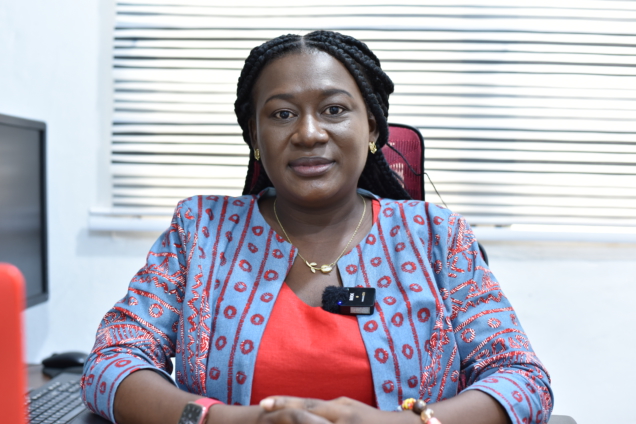The pharmaceutical industry relies on certain materials known as excipients to formulate drugs. Unfortunately, these materials are mostly imported and gnaw into the import bill of the industry.
What if excipients from natural sources, that is, these plants or food can come to the rescue? That is what Mariam El Boakye-Gyasi, Ghana’s first female professor of pharmaceutics is leveraging to help the country produce cheaper drugs.
Locally sourced and natural excipient queen
After completing her bachelor’s degree in pharmacy at the Kwame Nkrumah University of Science and Technology, she fell in love with the processes drugs go through before they are made available for consumption.
Mariam then took up the field of pharmaceutics, a branch of pharmacy concerned with the formulation and quality analysis of drugs to help her fulfill that desire. She completed both her masters and doctorate degrees in pharmaceutics at KNUST.
One of her earliest works which was published in the 2012 edition of the Asian Journal of Pharmaceutical and Clinical Research focused on naturally occuring gums as excipients in the pharmaceutical industry was promising.
Prof. Mariam and colleagues found that adding cashew gum to paracetamol enhanced the drug's mechanical strength while not hindering how the drug is released in the body.
After that success, Mariam went on to experiment with okra and cocoa pod husk pectin, chinaberry and drum tree gums, yam, cassava and even water melon rinds.
Quality control
Mariam has also been involved in post-market surveys. Indeed, her master’s thesis in 2011 assessed prevalence and quality of artemisinin-based anti-malarial drugs sold in the Kumasi Metropolis.
She and her colleagues continued in 2016, to assess the properties of metformin hydrochloride tablets in five cities in Ghana, and microbial quality of children oral formulations in 2020.
“We do our best to pick samples of the drugs from pharmacies, from over-the-counter medicine sellers’ stores and test them in terms of their drug content, quality, level of contamination etc,” she said.
Leveraging postharvest losses for cheaper drugs
Ghana has been battling with postharvest losses. Reports suggest average loss between 20 and 50 per cent. Prof. Mariam El Boakye-Gyasi believes her research will bring some relief.
She is hopeful that these materials can help in bringing down the cost of drugs.
“My research looks at utilizing locally available natural polymers as excipients so the cost of production will reduce and drugs will be available for all. From the results obtained so far, so good it’s working,” she said.
“This research area helps in preventing post-harvest wastage. So we’re not competing with the food industry. Pharmaceutical industry is going to mop up the excess product so that it leads to a reduction in the prices of medications. We’re going to convert postharvest wastage into wealth,” she said.
Mariam El Boakye-Gyasi is one of the youngest Associate professors at KNUST, a few years shy of 40. She is excited her feat will inspire the next generation of scientists.
“It’s not only to teach but to guide and inspire. And what better way to do this but to show that it can be done. I’m happy I’ve been able to set a good example for my students and mentees,” she said.
Latest Stories
-
Why increase contribution rate when you can’t manage what is given you? – NAGRAT asks SSNIT
30 mins -
There are greener pastures in Ghana – Prof Owusu-Dabo
2 hours -
Myjoyonline Interview with Abubakar Tahiru: Guinness World Record Holder for ‘Most Trees Hugged In An Hour’
2 hours -
JoyNews’ Clinton Yeboah honoured at 2023 Int’l Sports Media Awards in Spain
3 hours -
14 PWDs selected for maiden Africa Health Collaborative Medicine Counter Assistant training
3 hours -
Manchester United open to offers for nearly all of squad
3 hours -
Price of LPG per kilogramme constitutes 22% of taxes – LPG Marketers Association
5 hours -
Nigeria appoint Finidi George as new Super Eagles boss
6 hours -
Elevating Ghana’s creative industry: A blueprint for competing with Nigeria and South Africa
7 hours -
Poor finishing a problem for Asante Kotoko throughout the season – Prosper Ogum
7 hours -
Samini teams up with Francis Osei for ‘Sticks N Locks’ EP
7 hours -
Government should resource record labels – Seven Xavier
8 hours -
I need majority in parliament to successfully complete my term – Akufo-Addo pleads
8 hours -
Next NDC government will not recognise illegal contracts signed by current administration – Sammy Gyamfi
8 hours -
Premier League clubs vote in favour of spending cap plans
8 hours

